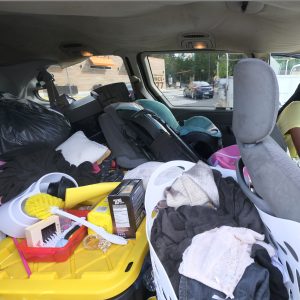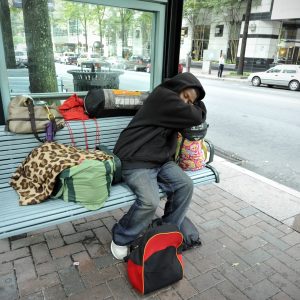Publications and Reports

How can we measure the developmental impacts of the COVID-19 pandemic on young children?
Across the United States and around the world, children and families are starting a new school year. Typically a time of excitement and new beginnings, the first day of school has again been overshadowed by the COVID-19 pandemic. We’ve learned a lot about the virus over the past 18 months. However, the ways in which […]

Supporting Charlotte’s minority-owned small businesses
A study released this week by the UNC Charlotte Urban Institute sheds light on the unique challenges minority-owned small businesses face and how the Charlotte-Mecklenburg community can better support these enterprises, which are key to community well-being and wealth-building. Defined as businesses with fewer than 500 employees, small businesses comprise 99.9% of all businesses. Small […]

Poverty suburbanization and job access: A new study tests ‘spatial mismatch’
Does where you live — and what jobs you have access to — influence whether you work, and how much you earn? The long-held “spatial mismatch” theory posits that inner city unemployment and poverty has been driven in large part by the increasing physical separation of inner city residents from job opportunities, as suburbs boomed […]

Introducing ‘Future Charlotte,’ a podcast about our city’s growth
Charlotte is a city with growth embedded in its DNA, a community where striving to be “world-class” has both propelled us forward and papered over many disparities just beneath the surface. And Charlotte’s growth shows no signs of slowing down. With a host of plans coming together in 2021 that will set the city’s path […]

New report release: Single adult homelessness integrated data
Mecklenburg County Community Support Services recently released the Single Adult Homelessness Integrated Data (SAHID) Report. This is the first community report focused specifically on single adult homelessness. The report is part of the Charlotte-Mecklenburg Housing Instability & Homelessness Report Series, which is funded by Mecklenburg County Community Support Services and completed by the UNC Charlotte […]

Trust in neighbors and police: Who has it and what does it mean for Charlotte?
This article was written by the UNC Charlotte Urban Institute. Data used in this series was collected in partnership with Leading on Opportunity, Opportunity Insights, Communities in Schools, YMCA of Greater Charlotte, Foundation For The Carolinas, and SHARE Charlotte, with staff funding from The Gambrell Foundation. See more results from the 2019 Mecklenburg Social Capital […]

Housing First works: Report sheds light on program to end homelessness
In the shadow of COVID-19, it’s easy to lose sight of the strides Charlotte-Mecklenburg has made to address chronic homelessness. Housing First Charlotte-Mecklenburg (HFCM) was launched in 2015 to end chronic homelessness in Charlotte-Mecklenburg by scaling housing first, particularly by expanding the housing first permanent supportive housing model. Through HFCM and the continued work of […]
Social Capital: A Tale of Caution and a Tale of Hope for Charlotte
This article was written by the UNC Charlotte Urban Institute. Data utilized in this series was collected in partnership with Leading on Opportunity, Opportunity Insights, Communities In Schools, YMCA of Greater Charlotte, Foundation For The Carolinas and SHARE Charlotte, and with staff funding from The Gambrell Foundation. To see more results from the 2019 Mecklenburg […]

Five key findings about the impact of COVID-19 on local renters and prioritizing rental assistance
COVID-19 has had an immediate and potentially lasting impact on the housing stability of low-income renters in Charlotte and the nation. Although the Centers for Disease Control and Prevention recently announced a federal eviction moratorium through the end of 2020, missed rent is not being forgiven. Renters need assistance to avoid often insurmountable back rents […]

Housing First Process Evaluation: Many housed, but lessons to learn
Housing First Charlotte-Mecklenburg (HFCM) was launched in 2015 to end chronic homelessness in Charlotte-Mecklenburg by scaling housing first, particularly the housing first permanent supportive housing model. Housing first programs prioritize housing as an early step in service delivery, have low-barrier admissions policies, maximize client choice in housing and services, use a harm reduction approach to […]